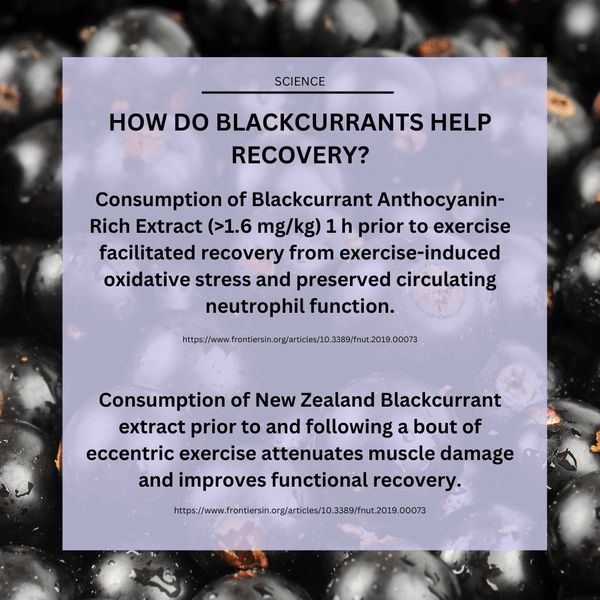Recovery Techniques
Athletes can benefit from a variety of recovery techniques.
Hydrotherapy, active recovery, stretching, compression garments, and massage are some of the most common techniques. However, it is up to the individual to determine which recovery techniques work best for them.
Active recovery, which is usually the most common, is low-intensity exercise such as walking, swimming, yoga, or cycling after a high-intensity exercise session. This is done to reduce the sensations of muscle soreness, muscle damage, inflammation, and physical fatigue. This type of recovery can be done in between sets, immediately after your workout (for example, the cooldown), or on your rest days.
But sometimes it's the most obvious things that are overlooked.
Nutrition is often overlooked because of a lack of time or planning.
Nutrition is one thing that should be on every athlete's list, but so often it's overlooked because of a lack of time or planning. In these times when everyone is looking for an athletic performance edge, nutrition could make the difference.
Read on to find out how.
Quality of Recovery
Recovery is critical if you want to succeed in sports or simply maintain and improve your performance.
The rate and quality of recovery are essential in high-performance athletes because optimal recovery can provide numerous benefits to individuals while training or competing. These benefits include less damaged tissue, reduced inflammation, promote muscle protein levels, more energy, improved focus, and more time for mental recovery.
Active recovery boosts blood flow, which aids in the removal of waste products from soft tissue that have been broken down by intense exercise. This increased blood flow then transports nutrients that help in the repair of muscles, tendons, and ligaments. It is essential to replenish glycogen stores in the muscles and liver after exercise by removing lactate from your muscles to restore homeostasis, or balance, in your body.
This is done by following a proper recovery procedure to prevent painful or damaged muscles.
Six Elements Influencing a Proper Recovery Procedure
Recovery is more than a cool down and stretch.
Many factors influence athletic performance and the quality of your training or competition. That's why adequate recovery should take these factors into account. These consist of:
- Level of training/competition - the volume, intensity, duration, and type of sport you compete in all have an impact on the type of recovery you need to do. Because the degree of fatigue varies between sports, you may need to do a higher-intensity recovery if you compete in numerous high-intensity sports.
- Nutrition - is also a crucial factor to consider when recovering properly, as carbohydrates, protein, fluid, and electrolyte balance all play important roles in recovery.
- Psychological stress - Adequate recovery should take into account psychological stress, such as stress and anxiety due to competition.
- Lifestyle - An individual's lifestyle should also be considered because sleep quality and quantity, housing situation, relationships with team members and coaches, and employment all play a role in recovery.
- Health - Athletes typically experience disease, injury, infection, muscle discomfort, and damage as a result of the relentless strain they place on their bodies during competition. These affect recovery and should be taken into account when recovering well.
- Environment - the environment, including temperature, altitude, and humidity, is an important consideration when recovering properly, as different recovery techniques may be used depending on these factors.

Nutrition for Training and Competition
When it comes to improving your athletic performance and recovery, nutrition is essential.
Because of the significant link between nutrition and recovery, ensuring you are getting proper nutrition while training is critical for optimising recovery. To support your recovery, your nutrition should be carefully planned to boost your body's ability to adapt positively from the training session.
It's tempting to eat the first thing you see (and lots of it) but you need to think carefully about refuelling the body with the fluids, electrolytes and other substances you lose and promoting muscle repair and growth.
There are six components: Energy balance/availability, Macronutrients, Micronutrients, Hydration, Nutrient timing, and Supplements.
The order of these is from most important to less important, however, including all of them in combination with each other is the most beneficial. For example, even if supplements are not as effective as macro- and micronutrients, they serve a crucial role in supporting recovery and increasing performance, particularly if they contain natural ingredients like 2before, that are known to have these effects.
Energy Balance and Availability
When looking to balance levels of energy and its availability, it is crucial to ensure that your body has sufficient energy to recover correctly.
The foundation of the repair process is calorie consumption, this is what gives you energy, so it's critical to match your calorie intake via meals or snacks with your training sessions to make sure you are getting enough calories.
Energy availability reflects the difference between dietary energy intake and exercise energy expenditure. This is essential for your health and recovery. Low energy availability denotes a condition in which the body doesn't have enough energy to support all physiological functions required for optimal health. This happens when you don't consume enough calories for the amount of exercise you are doing, resulting in an energy deficit because of an imbalance in energy intake and expenditure.
If you don't have enough calories to replenish your muscles, your body cannot recover properly. Overall, this hurts performance, recovery, and health, which is why athletes must consume sufficient calories.
Macronutrients
When it comes to recovery, macronutrients are extremely important. Carbohydrates, protein, and fat are examples of macronutrients.
Carbohydrates
Carbohydrates are the most important nutrient for muscle glycogen synthesis; they play the most important role in replenishing glycogen stores that have been depleted during exercise.
During intense, intermittent exercise and any prolonged physical activity, these muscle glycogen particles are broken down. This frees up glucose molecules for the muscle cells to oxidize, producing adenosine triphosphate (ATP) molecules required for muscles to function.
To recover properly after vigorous exercise, consume 1g of carbohydrate per kilogram of body weight per hour for the first four hours. Muscle tissue can be thought of as being like a sponge, so it will rapidly soak up glucose from high-glycemic carbohydrates.
Protein
Protein is the building block for your muscles. Eating protein, especially after exercise, helps to stimulate protein synthesis. Protein synthesis is the process by which the body
You should also consume 1.6 to 2 grams of protein per kilo of body weight per day to maximise your recovery. It is best to consume consistent amounts of protein in your meals throughout the day, with studies saying it's best immediately after exercise, and every 4-5 hours during rest periods.
Fat
Fat is also important in the recovery process because it is a great source of energy and helps with inflammation. Athletes should focus on getting their fat from unsaturated fats like oily fish, nuts, seeds, and olive oil because high amounts of saturated fats are not beneficial to the body when recovering.
Consuming 20-35 per cent of your calories in unsaturated fats is ideal for optimising recovery.
Micronutrients
Micronutrients refer to vitamins and minerals, the majority of which you get from consuming an adequate quantity of vegetables and fruits.
The main micronutrients are Iron, Vitamin A, Vitamin D, Iodine, Folate, and Zinc. These are essential for energy production, bone growth, renewal of cells, and support of your immune system. A deficiency in these is likely to be detrimental to your sport and will slow down your recovery process.
Hydration
Hydration is critical for optimal recovery because, without adequate fluid, you will not be able to flush toxins out of your body. It also helps thin your blood and transport nutrients and oxygen throughout your body, resulting in a faster recovery process.
As an athlete, your goal is to hydrate back to your pre-exercise weight to compensate for all of the sweat lost while exercising and to get your muscles and body back to a hydrated state.
It's a good practice to occasionally weigh yourself before and after a heavy bout of exercise where you're sweating heavily - you might be surprised at just how much water your body loses.
Nutrient timing
Nutrient timing is also another aspect that assists in the recovery of your muscles after exercise.
Athletes can benefit from timing their carbohydrate consumption by ingesting carbohydrates before and after exercise. This will prevent muscle discomfort and injury, as well as enhance tissue repair, due to the quick and consistent consumption of carbohydrates before and after exercise.
By assuring pre- and post-exercise meals meet your nutrient needs, your activity will be fueled, and your glycogen stores and protein balance will be maintained.
Supplements
Lastly, the use of supplements during the recovery process can be beneficial.
However, the type of supplement that you choose to take is essential, since some may not assist in recovery at all (some commonly available sports drinks are little more than sugar water) and others may be primarily oriented towards enhancing performance.
We feel that enhancing both recovery and performance is of the utmost importance, as we recognise that recovery is just as crucial to sporting success as performance.
That's why 2before Pre-Workout Blackcurrant berry is a combination of the two and is available as a pre-workout with caffeine and a pre-workout without caffeine.
2before is extremely beneficial for both athletic performance and recovery. Our plant-powered products are made from New Zealand blackcurrants, which have a high anthocyanin content.
Anthocyanins are water-soluble pigments that give fruits and vegetables the colours red, blue, and purple. This is what gives 2before the dark purple pigmented colour, as our products are packed with New Zealand blackcurrants.
Our blackcurrants help manage oxidative stress and promote faster recovery because they contain the ideal ratio of prooxidants and antioxidants. Because of the management of this exercise-induced oxidative stress and inflammation, exercise recovery is improved overall. In addition, research indicates that blackcurrants can decrease muscle soreness and damage after exercise by reducing creatine kinase, allowing your muscles to heal to their maximum potential. Blackcurrant berries have been shown to have potent anti-inflammatory, antioxidant and antimicrobial effects which can benefit athletes.
If you want to optimise your recovery so that your muscles are not damaged and you experience less soreness, consider 2before as your supplement due to the high anthocyanin content in our products, which benefits your recovery process.
However, it is also essential to combine the appropriate supplements with the necessary nutrition, while taking into account other surrounding factors that may affect recovery.
Nutrition - The Often Overlooked Factor in Optimising Recovery
Nutrition has been proven to be one of the most crucial factors in optimising your recovery, as it increases glycogen and protein stores within your body and muscles. Without adequate nutrition, muscle damage from high-intensity exercise will not be repaired and reconditioned - basically, you won't get the best out of the effort you've put into your workout.
In conclusion, the optimal nutritional intake consisting of protein, carbs, fluids, and macro- and micronutrients is essential for replenishing muscles so athletes can perform and recover to their fullest potential.
Frequently Asked Questions On Improving Recovery Through Nutrition (FAQ)
What are some specific dietary recommendations for athletes recovering from injury or illness?
When it comes to recovery from injury or illness, athletes can benefit from tailored dietary strategies. Here are some recommendations:
- Caloric Intake: Eat enough calories to support the healing process. Focus on nutrient-dense foods that provide essential micronutrients1. Maintaining an appropriate calorie balance is crucial during recovery. Protein Intake: Aim for at least 1 gram of protein per pound of body weight. Protein is essential for tissue repair and muscle recovery, include sources like lean meats, fish, eggs, and plant-based options.
- Balanced Fats: Balance your dietary fats, ensuring you get more omega-3s than omega-6s. Healthy fats play a role in reducing inflammation and supporting overall health.
- Carbohydrates: Consume starchy, high-fiber carbohydrates in moderation. These provide energy for recovery without causing excessive blood sugar spikes
- Hydration: Adjust fluid intake to account for reduced physical activity during recovery. Proper hydration supports healing and overall well-being
- Food Log: Keep a food log to monitor eating patterns and dietary intake. This helps track progress and identify any deficiencies or imbalances.
How can athletes manage hydration during recovery?
Hydration during recovery is crucial for optimal performance and muscle repair. Here are some strategies that athletes can employ:
- Fluid Intake: Athletes should prioritize rehydration immediately after exercise. Aim to drink water or electrolyte-rich beverages to replace fluids lost during physical activity. Monitor urine color—pale yellow indicates proper hydration.
- Electrolytes: Along with water, replenish electrolytes such as sodium, potassium, and magnesium. These minerals play a vital role in maintaining fluid balance and muscle function. Consider consuming sports drinks, coconut water, or electrolyte tablets.
- Post-Workout Meals: Include water-rich foods in your post-workout meals. Fruits like watermelon, oranges, and grapes are excellent choices. Additionally, consume foods with high water content, such as cucumbers and leafy greens.
Remember that individual hydration needs vary based on factors like exercise intensity, duration, and environmental conditions. Listen to your body, stay hydrated, and prioritize recovery!
What practical strategies can athletes employ to address psychological stress and lifestyle factors that impact recovery?
- Maintain a Healthy Lifestyle: Prioritize overall well-being by managing stress, staying hydrated, and avoiding unhealthy habits such as smoking and excessive alcohol consumption
- Incorporate Recovery Tools: Utilize tools like stretching and foam rolling to reduce muscle tension, improve range of motion, and enhance mobility. Adequate sleep, nutritious meals, and light activities are also essential.
- Coping Strategies: Implement effective coping mechanisms. These can include task-oriented coping (such as goal-setting and time management) and avoidant-oriented coping (such as mental withdrawal and distancing from stressors)
References
Halson, S. L. (2014, January). Recovering Techniques for Athletes. https://www.gssiweb.org/sports-science-exchange/article/sse-120-recovery-techniques-for-athletes
Gomez, J. (2016, November 2). The Benefits of Recovery – It Does Your Body (and your game) Good. https://intermountainhealthcare.org/blogs/topics/sports-medicine/2016/11/benefits-of-recovery-it-does-your-body-and-game good/
Ansorge, R. (2022, February 7). Rest and recovery are critical for an athlete’s physiological and psychological well-being. https://www.uchealth.org/today/rest-and-recovery-for-athletes-physiological-psychological-well-being/
Lecovin, G. (n.d.). Nutrition for Muscle Repair and Recovery. https://blog.nasm.org/nutrition-for-recovery
Melin, A. K., Heikura, I. A., Tenforde, A., & Mountjoy, M. (2019). Energy Availability in Athletics: Health, Performance, and Physique. International Journal of Sport Nutrition and Exercise Metabolism, 29(2), 152-164. https://journals.humankinetics.com/view/journals/ijsnem/29/2/article-p152.xml l
Wasserfurth, P., Palmowski, J., Hahn, A. and Kruger, K. (2020). Reasons for and Consequences
of Low Energy Availability in Female and Male Athletes: Social Environment, Adaptations, and Prevention. Sports Med Open, 6(1):44. https://www.ncbi.nlm.nih.gov/pmc/articles/PMC7483688/
Centers for Disease Control and Prevention. (n.d.). Micronutrient Facts.
https://www.cdc.gov/nutrition/features/micronutrient-facts.html
Khoo H. E., Azlan A., Tang S. T., & Lim S. M. (2017). Anthocyanidins and anthocyanins: colored pigments as food, pharmaceutical ingredients, and the potential health benefits. Food Nutr Res., 61(1):1361779. doi:10.1080/16546628.2017.1361779Azland https://www.ncbi.nlm.nih.gov/pmc/articles/PMC5613902/.
Hunt, J. E. A., Coelho, M. O. C., Buxton S., Butcher, R., Foran, D., Rowland, D., Gurton, W., Macrae, H., Jones, L., Gapper, K. s., Manders, R. J. F., & King, D. G (2021). Consumption of New Zealand Blackcurrant Extract Improves Recovery from Exercise-Induced Muscle Damage in Non-Resistance Trained Men and Women: A Double-Blind RandomisedTrial. Nutrients, 13(8).
doi:10.3390/nu13082875 https://www.ncbi.nlm.nih.gov/pmc/articles/PMC8399782/



